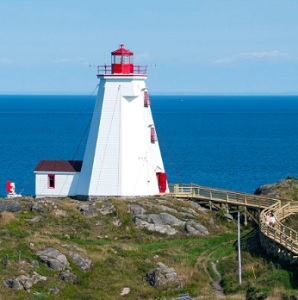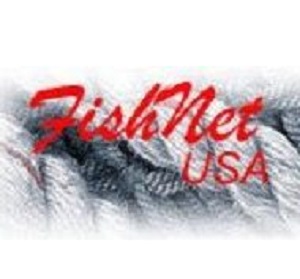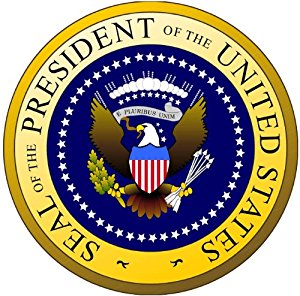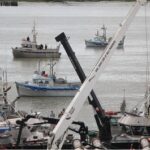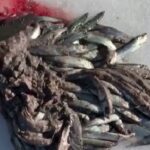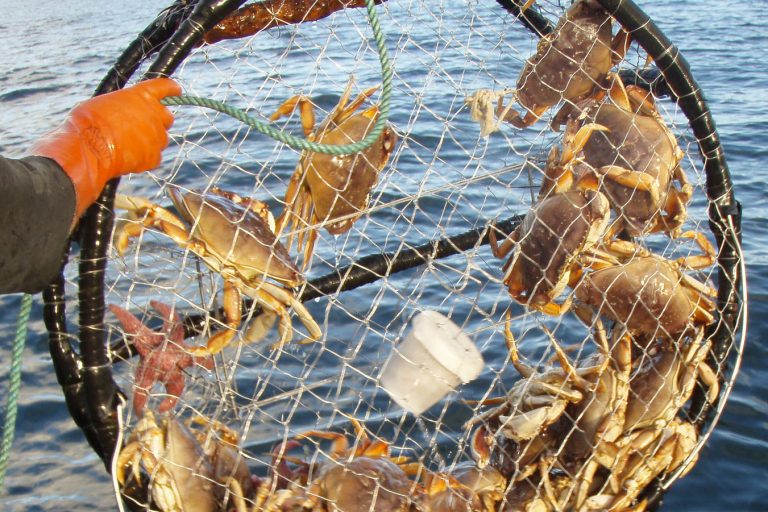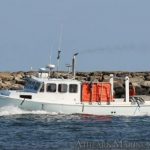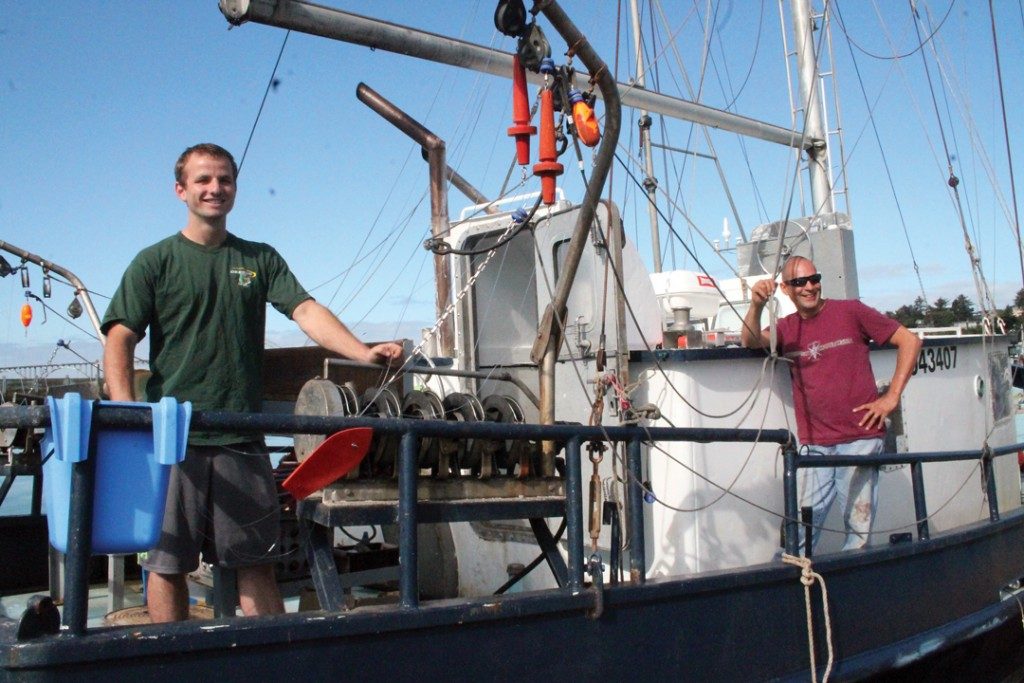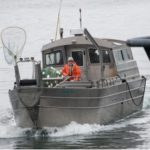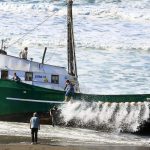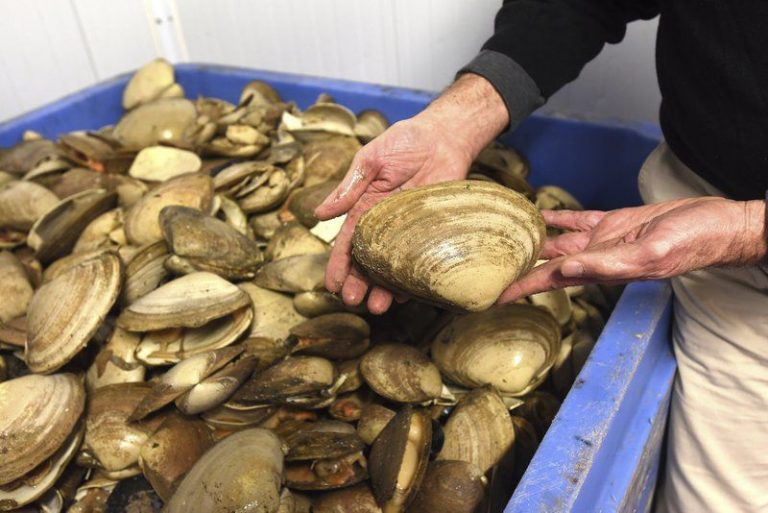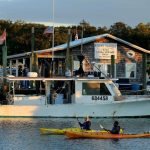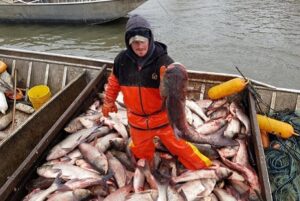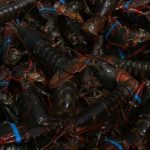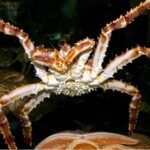Tag Archives: Department of Agriculture
Grants available for municipal and regional projects in coastal communities
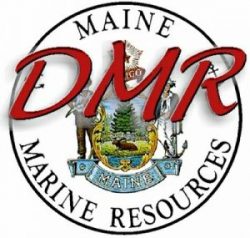 The Department of Marine Resources’ Maine Coastal Program (MCP) and the Department of Agriculture, Conservation and Forestry’s Municipal Planning Assistance Program (MPAP) are seeking applications for coastal planning grants totaling approximately $300,000. Funding for these planning grants comes from the Maine Coastal Program’s annual grant from the National Oceanic and Atmospheric Administration (NOAA). In response to the significant impacts of recent storms experienced by Maine’s coastal communities, the FY 2025 Coastal Community Grant Program and Shore and Harbor Planning Grant Program are being combined into one grant program. The matching fund requirement has been eliminated and the application process has been modified to include a Letter of Intent, followed by a final application by invitation only. Lots of links, and information. more >>click to read<< 16:39
The Department of Marine Resources’ Maine Coastal Program (MCP) and the Department of Agriculture, Conservation and Forestry’s Municipal Planning Assistance Program (MPAP) are seeking applications for coastal planning grants totaling approximately $300,000. Funding for these planning grants comes from the Maine Coastal Program’s annual grant from the National Oceanic and Atmospheric Administration (NOAA). In response to the significant impacts of recent storms experienced by Maine’s coastal communities, the FY 2025 Coastal Community Grant Program and Shore and Harbor Planning Grant Program are being combined into one grant program. The matching fund requirement has been eliminated and the application process has been modified to include a Letter of Intent, followed by a final application by invitation only. Lots of links, and information. more >>click to read<< 16:39

Giving Back: Wenzel uses net gains to help needy
As the son of a carpenter and custom home builder, Brick Wenzel said he hated getting wood splinters in his fingers when he was young. Born and raised in Lavalette, just north of Seaside Heights in Ocean County, he said his fascination with fish began in his early teens. As a young teen, he would collect bait fish and sell them to fishermen around town and party boat fishing captains to earn money, aside from his duties delivering the Ocean County Observer. His lifelong passion for all things fish-related has paid off. In 2018, to give back to the community at large, he founded America’s Gleaned Seafood, a non-profit group that donates leftover fish to area food banks. Offices for America’s Gleaned Seafood are located at the Point Pleasant Seafood Co-Op, which he believes is the oldest farmers’ cooperative in the United States. more, >>click to read<< 08:01
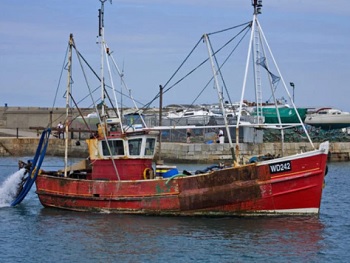
Review Shows Irish Fishing Industry Buoyed By Exports But Brexit & Coronavirus Cast A Shadow
The Department of Agriculture, Food and the Marine’s latest Annual Review and Outlook for the fisheries sector is a generally positive one, though tempered by the challenges of Brexit and the coronavirus. Published today, Thursday 8 October, the review cites CSO figures for 2019 which put the value of Irish seafood exports at €577 million with increases in the value of both salmon and mackerel, Ireland’s most valuable export catches. The coronavirus pandemic has seen similar challenges experienced across the fisheries and aquaculture sectors over the course of 2020 thus far. “Nonetheless, in spite of the difficulties, the fishing industry has continued to keep food in our shops and on our tables during this extraordinary time,” >click to read< 14:10
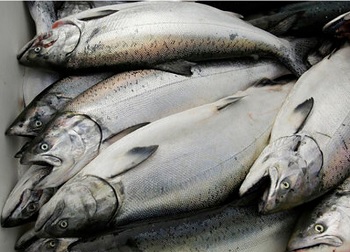
Seafood Trade Relief Program: Fishermen impacted by retaliatory tariffs can apply for help from the USDA
Fishermen and those in the U.S. seafood industry can start applying for help from the Department of Agriculture if they were impacted by retaliatory tariffs from foreign governments. U.S. Secretary of Agriculture Sonny Perdue announced Wednesday the USDA will provide approximately $527 million in relief to those impacted. “The Seafood Trade Relief Program ensures fishermen and other U.S. producers will not stand alone in facing unjustified retaliatory tariffs while President Trump continues working to solidify better and stronger trade deals around the globe.” >click to read< 17:16
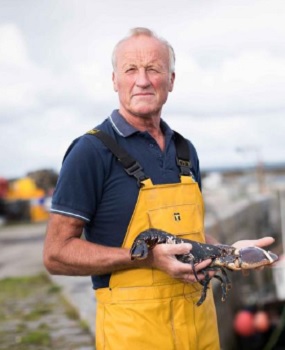
Alarm in Irish lobster sector over Hogan’s new US trade deal
The Department of Agriculture, Food and Marine says Ireland is “still considering” the full implications of the “mini-deal”, which was welcomed as “mutually beneficial” by Mr Hogan and US President Donald Trump’s trade negotiator Robert Lighthizer. The two men concluded the deal on August 21, two days after Mr Hogan attended the Oireachtas Golf Society dinner in Clifden, Co Galway, which led to his resignation last week. The EU has agreed to eliminate tariffs on imports of US live and frozen lobster for five years, in return for halving of tariffs imposed by the US on certain EU products, including ready meals and crystal glassware. The US exported more than $111m-worth of lobster to the EU in 2017. >click to read< 10:13
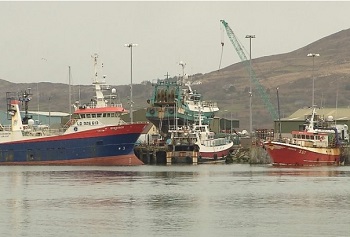
Fishing industry calls for ‘tie-up’ scheme during Coronavirus crisis
Irish fishing industry representatives have called on the Government to provide a temporary fishing cessation tie-up scheme for vessels to support the industry through the turmoil created in the markets by Covid-19. 64% of Irish seafood exports are reliant on European markets. With restaurants and businesses closed throughout Ireland’s main fish export markets in Spain, France and Italy prices have tumbled for Irish fishermen. Fishermen on the west coast would usually expect up to €20 a kilo for lobster at this time of year. Now, however, they are being offered from €6 to €10 a kilo as there is no market for the produce. >click to read< 19:05
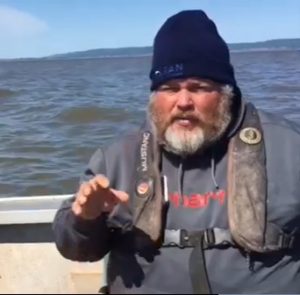
Porter family fights for safe passage of fish in the Minas Basin
When Darren Porter knows the tide and water temperature are right for the gaspereau to make their run, he calls the Department of Agriculture staff person capable of opening the gates in the causeway across the Avon River. “If it’s convenient for them to listen to me they open them, if it’s not they don’t,” said the Hants County fisherman. “All I can do is make the call and hope the fish get a chance to fulfil their life cycle.” For Porter the battle for fish passage in the Avon River is already largely lost. >click to read< 11:17

SA government targets lobster poacher’s US trust millions after conviction
The Department of Agriculture, Forestry and Fisheries (DAFF) will be making use of diplomatic channels and legal remedies to access the funds in an international fishing kingpin’s trusts held in Jersey. Between 1987 and 2000, Arnold Bengis was responsible for poaching West Coast rock lobster and illegally importing it into the US, resulting in a decline in rock lobster numbers. The 81-year-old was convicted by the New York Southern District Court last year for poaching West Coast rock lobster and was ordered to forfeit $67m to DAFF. Bengis refused to comply with the restitution order by cleverly shielding his assets in foreign trusts. >click to read<11:17
How Big Business Uses Big Government To Ruin Small Fishermen Like Me
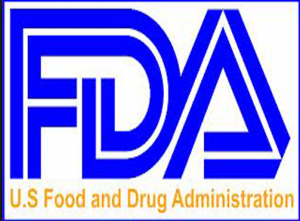 Ensnared in an international trade dispute between Vietnam and very large U.S. catfish farms are hundreds of small wild-caught catfish producers throughout the United States. As a commercial fisherman for near on 40 years now, it didn’t take long for me to figure out that nature was at best ambivalent about whether I make a living. Being driven from the water by a thunderstorm that made working the last few crabtraps in a string unsafe was not unusual. Even if the weather part of nature cooperated, of course, there were fluctuations in abundance.,, But you know what, your own government is not nature click here to read the story 09:08
Ensnared in an international trade dispute between Vietnam and very large U.S. catfish farms are hundreds of small wild-caught catfish producers throughout the United States. As a commercial fisherman for near on 40 years now, it didn’t take long for me to figure out that nature was at best ambivalent about whether I make a living. Being driven from the water by a thunderstorm that made working the last few crabtraps in a string unsafe was not unusual. Even if the weather part of nature cooperated, of course, there were fluctuations in abundance.,, But you know what, your own government is not nature click here to read the story 09:08

South Africa – Disgruntled small scale fishermen, ‘Suspend lobster fishing rights allocation process immediately’
Police were called to maintain order when a group of disgruntled fishers stormed the Department of Agriculture, Forestry and Fisheries offices on the Foreshore yesterday. They were demanding the immediate suspension of the West Coast rock Llobster fishing rights allocation process. They want the West Coast rock lobster offshore allocations shifted from big companies to near shore and small scale fishers. click here to watch video, read the story 11:19
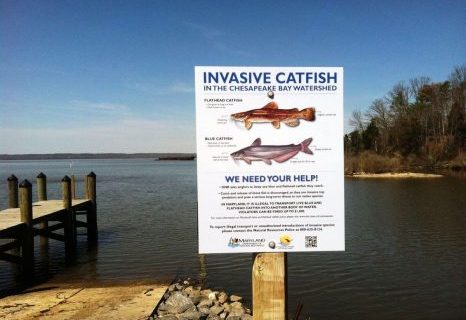
Maryland fishermen fight federal catfish regulations
Maryland Gov. Larry Hogan’s administration has joined the cause and also sent a letter to UDSA Secretary Perdue, asking for “immediate regulatory relief” from the mandated inspection program for the wild-caught, U.S. catfish industry. “With the U.S. seafood trade deficit reaching historic proportions, strict harvest limits on most other wild seafood species, and traditional U.S. seafood jobs on the decline, the (Trump) Administration must provide every possible advantage to Americans seeking to invest in the business of wild-caught, domestic catfish,” Hogan wrote in the letter dated Tuesday, Aug. 8. Hogan wrote that American consumers increasingly are demanding wild, domestic seafood, and catfish is among that. The “seafood market for catfish in the Maryland/Virginia/D.C. region has grown from zero to millions of pounds sold in just a few years,” the letter reads. click here to read the story 08:30
Connecticut’s Largest Oyster Bed Closed Amid Contamination Concerns
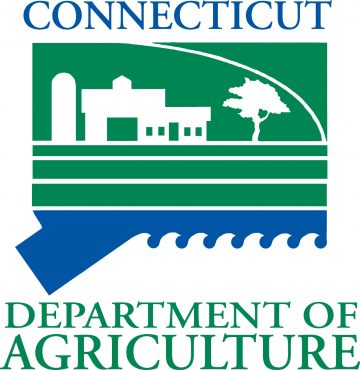 The state’s largest seed-oyster bed has been shut down because of contamination concerns tied to illegal harvesting. The Department of Agriculture says the Housatonic River Natural Oyster Seed Bed was shut down after several incidents involving commercial fisherman breaking harvesting regulations related to contaminated oysters. Commercial fishing firms are supposed to transfer oysters from the river, which contains pollutants from nearby sewage treatment plants, to “relay” beds in the Long Island Sound for six months so they can be naturally cleansed. Oysters that do not go through this process could contain bacteria and viruses that would make people sick if eaten. An oyster boat captain was arrested on June 7 on accusations of illegally transplanting contaminated oysters from the bed onto oysters in the Sound. Since then the state has increased patrols in the area and the Dept. of Agriculture says they have spotted other suspicious activities around the bed. Read the rest here 11:03
The state’s largest seed-oyster bed has been shut down because of contamination concerns tied to illegal harvesting. The Department of Agriculture says the Housatonic River Natural Oyster Seed Bed was shut down after several incidents involving commercial fisherman breaking harvesting regulations related to contaminated oysters. Commercial fishing firms are supposed to transfer oysters from the river, which contains pollutants from nearby sewage treatment plants, to “relay” beds in the Long Island Sound for six months so they can be naturally cleansed. Oysters that do not go through this process could contain bacteria and viruses that would make people sick if eaten. An oyster boat captain was arrested on June 7 on accusations of illegally transplanting contaminated oysters from the bed onto oysters in the Sound. Since then the state has increased patrols in the area and the Dept. of Agriculture says they have spotted other suspicious activities around the bed. Read the rest here 11:03
Integrity of small-scale fisheries policy implementation process compromised
 A meeting called by the Department of Agriculture, Forestry and Fisheries (DAFF) to discuss aspects of the small-scale fisheries policy was deeply flawed, according to representatives of Masifundise and Coastal Links South Africa who attended. Masifundise and Coastal Links SA this week issued a statement to outline the basis of their concern. The media release reads as follows; Read the rest here 16:14
A meeting called by the Department of Agriculture, Forestry and Fisheries (DAFF) to discuss aspects of the small-scale fisheries policy was deeply flawed, according to representatives of Masifundise and Coastal Links South Africa who attended. Masifundise and Coastal Links SA this week issued a statement to outline the basis of their concern. The media release reads as follows; Read the rest here 16:14
Kampachi Farms want to release grouper, but face resistance
Eventually Kampachi acquired broodstock from Taiwan, intending to raise them and hoping to release their offspring. Sarver figured there would be no problem from a regulatory standpoint considering the fish is native to the region. Then he found out that state Department of Agriculture rules prohibit release of the grouper or any imported fish, into Hawaii waters. Read more here 21:55
Atlantic salmon can be farmed on land, B.C. project shows
![]() A British Columbia First Nation is using a workshop this week in St. Andrews to explain how it is growing Atlantic salmon without the fish ever seeing the ocean. The Namgis closed-containment facility on Vancouver Island is the first salmon farm in North America to grow Atlantic salmon on a commercial scale in a completely land-based aquaculture system. Read more here 09:53
A British Columbia First Nation is using a workshop this week in St. Andrews to explain how it is growing Atlantic salmon without the fish ever seeing the ocean. The Namgis closed-containment facility on Vancouver Island is the first salmon farm in North America to grow Atlantic salmon on a commercial scale in a completely land-based aquaculture system. Read more here 09:53
NOAA and partners release first federal ocean acidification strategic research plan
 Today, NOAA and its partners released the first federal strategic plan to guide research and monitoring investments that will improve our understanding of ocean acidification, its potential impacts on marine species and ecosystems, and adaptation and mitigation strategies. Read more here 10:04
Today, NOAA and its partners released the first federal strategic plan to guide research and monitoring investments that will improve our understanding of ocean acidification, its potential impacts on marine species and ecosystems, and adaptation and mitigation strategies. Read more here 10:04
Head of fisheries enforcement didn’t understand laws, trial hears
![]() The province’s head of fisheries and aquaculture enforcement has admitted he didn’t understand his department’s laws and policies in 2011, when he was dealing with a case involving the brother of Deputy Premier Paul Robichaud. Read more here cbcnews 22:54
The province’s head of fisheries and aquaculture enforcement has admitted he didn’t understand his department’s laws and policies in 2011, when he was dealing with a case involving the brother of Deputy Premier Paul Robichaud. Read more here cbcnews 22:54
Fisheries official tried to keep Robichaud file secret – didn’t make government ‘look good,’ Wilbert Sabine testifies
![]() The head of enforcement at the Department of Agriculture, Aquaculture and Fisheries says he marked his emails on the Donat Robichaud case as “confidential” because he knew the affair would look bad to the public. Read more here 10:53
The head of enforcement at the Department of Agriculture, Aquaculture and Fisheries says he marked his emails on the Donat Robichaud case as “confidential” because he knew the affair would look bad to the public. Read more here 10:53
Fisherman Darren Porter fears gate closures killing fish – “Once you see enough of it, it’s hard to watch.”
The Hants Journal – Darren Porter fishes in the Avon River for gaspereau five days a week in April and May. He first approached the Hants Journal with concerns that the gatekeeping practices at the causeway were causing large numbers of fish to die in May 2011.  Porter says smaller gate openings more often allow for the best possible fish passage into spawning grounds upstream, but that’s not what he’s been seeing this spring. “Once you see enough of it, it’s hard to watch.” continued
Porter says smaller gate openings more often allow for the best possible fish passage into spawning grounds upstream, but that’s not what he’s been seeing this spring. “Once you see enough of it, it’s hard to watch.” continued






